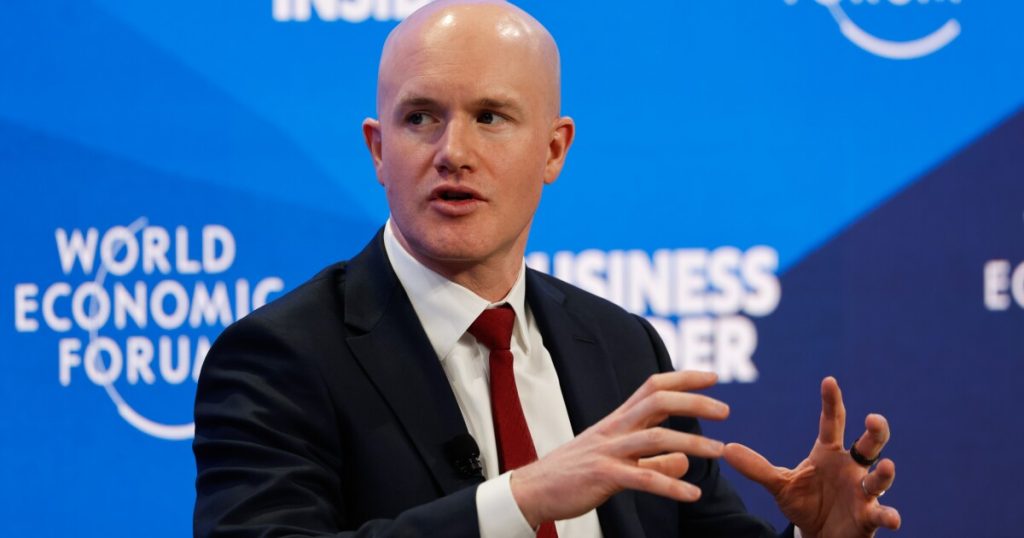- Key insights: The Coinbase-BVNK acquisition fell through; Visa launched its second stablecoin pilot on Visa Direct; the Bank of England seeks input on stablecoin restrictions; and more in this week’s global payments roundup.
- What’s at stake: Payment companies continue to look for use cases that leverage stablecoins following the passing of the GENIUS Act.
- Forward look: Canada’s real-time payments network is still expected to launch in 2026.
Cryptocurrency exchange Coinbase and stablecoin infrastructure startup BVNK have called off their planned acquisition worth $2 billion, according to
The deal was reportedly in the due diligence stage after the two companies entered into exclusivity agreements in October. The reason the deal fell through was not immediately clear.
U.K.-based BVNK is a technology company that provides traditional payment and stablecoin infrastructure such as cross-border payments and digital wallets to companies. The company works with
The news broke the same day Coinbase said it was launching an interest-bearing savings account in the United Kingdom.
The account provides deposits, withdrawals and no minimum lockup, and will be powered by ClearBank, a U.K.-based clearing bank. Eligible users will earn 3.75% in annual interest, and balances of up to 85,000 pounds will be protected by the country’s Financial Services Compensation Scheme.
The move comes as Coinbase looks to further entrench itself into more traditional financial services in the U.S. and abroad. The exchange this year has
Visa pilots stablecoin payouts to creators, gig workers on Visa Direct
Visa has launched a new pilot for stablecoin payouts on Visa Direct, its real-time payments network, as the company looks to further
The pilot allows businesses and platforms to send U.S. dollar-backed stablecoin payouts directly to stablecoin wallets, increasing the speed at which creator and gig workers can access their wages.
“Launching stablecoin payouts is about enabling truly universal access to money in minutes — not days — for anyone, anywhere in the world,” said Chris Newkirk, president, Commercial & Money Movement Solutions at Visa, in a statement. “Whether it’s a creator building a digital brand, a business reaching new global markets or a freelancer working across borders, everyone benefits from faster, more flexible money movement.”
The payout pilot comes less than two months after Visa stood up a

Bloomberg Creative Photos/Bloomberg
The Bank of England seeks input on stablecoin restrictions
The
The BofE is proposing stablecoin issuers can hold up to 60% of the backing assets in short-term U.K. government debt. The other 40% can be in unremunerated accounts. Another proposal would limit investments to about $26,300 per stablecoin for consumers and $13.1 million for businesses.
These limits have drawn criticism from organizations such as the U.K. Crypto Asset Business Council, which lobbies for Coinbase, Ripple and other cryptocurrency companies, contending that most stablecoins are U.S.-dollar backed, and limiting U.K. stablecoins would enhance U.S. control over the market.
The BofE says the limits are to create stability in the market, and would be removed once the pace of bank deposit outflows to stablecoins no longer poses a risk to the economy.
“Our objective remains to support innovation and build trust in this emerging form of money. We’ve listened carefully to feedback and amended our proposals for achieving this, including on how stablecoin issuers interact with the Bank of England. These proposals are fit for a future where stablecoins play a meaningful role in payments, giving the industry the clarity it needs to plan with confidence,” Sarah Breeden, deputy governor for financial stability for the BofE, said in a release. —John Adams

Travel payments tech takes off in Japan
Japanese payment firm JCB has signed a three-year deal with Singapore-based travel platform Agoda to improve data-driven marketing, particularly with inbound travelers to Japan.
The collaboration will focus on boosting use of JCB cards. JCB card members will receive discounts and special offers on Agoda in Taiwan, China, Hong Kong, the Philippines, South Korea and other Asian markets. In the first half of 2025, Japan was Agoda’s top searched destination, with a 35% increase in searches, according to JCB and Agoda.
“This partnership allows us to provide timely, relevant information that aligns with each customer’s travel journey,” said Masaki Yokawa, president and CEO of JCB International, in a release.
Travel, which involves a mix of search, shopping, booking and payments, is a common entry point for companies looking to build a base of users for new payment technology. Recent initiatives include a product from

Canada sets an agenda for payments innovation
Calling it a blueprint for “Canada’s sovereignty,” the budget covers a wide range of issues, including border security, response to tariffs and environmental challenges, among other topics. In the financial services industry, the budget includes updating rules for stablecoins, a move that comes as a consortium of banks and payment companies develop a
The Bank of Canada will set aside about $12 million over the next two years, and $6 million in annual costs to manage stablecoin oversight — with the cost benign offset from regulated stablecoin issuers.
The budget additionally allocates about $28 million to fund the Bank of Canada’s supervision of the country’s open banking program, which will launch in 2027. The funds cover the next five years, as the Canadian government pushes data-sharing technology to compete with similar trends in the U.S. and other countries. The country also plans to research uses of new forms of artificial intelligence for banking, promising more details will be released in the coming months, and affirmed the country’s
“Canada, and the world, has been experiencing a high level of uncertainty and a true generational shift,” Canadian Minister of Finance and National Revenue François-Philippe Champagne said in announcing the budget.
“The challenges are great, but the opportunities for Canada are even greater. This budget must be generational in its ambition and serve to shape our economy and our nation’s future.” —John Adams

Adyen lays out ‘offensive strategy’ at investor day
Amsterdam-based payments platform
Adyen said it expected to post long-term revenue growth of approximately 20% beyond 2026, according to a Keefe Bruyette and Woods research note. Adjusted EBITDA margin is expected to come in above 55% by 2028.
“Adyen remains a strong organic growth story in the payments industry and one that is hard to find in the payments space, with approximately 20% revenue growth over the intermediate term and expanding EBITDA margin, while making substantial investment to win in the future (i.e., value-added products,
The company held its investor day nearly two weeks after its quarterly earnings report. Adyen’s net revenue was 598.4 million euros, an increase of 20% year over year and up 23% on a constant currency basis. Processed volume hit 346.9 billion euros, up 8% year over year. —Joey Pizzolato

Revolut launches fee-free stablecoin conversions
Customers can now swap up to $578,000 USD for USDT or USDC per month at a one-to-one ratio with no fees. Revolut says the move is an attempt to increase transparency in stablecoin conversions, which often are riddled with hidden fees.
It’s also the latest step in Revolut

